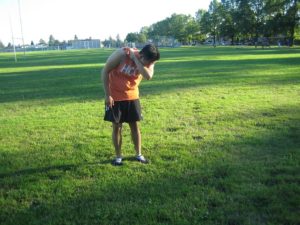Chickenpox is a transmittable condition that results to an itchy rash and reddened spots or blisters all over the body. It can trigger issues among newborns, pregnant women, adults, teenagers and individuals who have immune system issues that makes it difficult for the body to fight the infection.
The condition is not usually serious among healthy children. On the other hand, a child with chickenpox should stay home. After having chickenpox, one is not likely to acquire it again but the virus remains in the body long after recovery. In case the virus is activated again, it can trigger a viral infection called shingles.
What are the causes and how it spreads?
Chickenpox is triggered by the varicella-zoster virus and readily spreads to others. An infected individual can spread it by sneezing, coughing or sharing food or beverages. One can also acquire it by touching the fluid from the blisters.

An individual with chickenpox can proliferate the virus even before any symptoms arise. Remember that it spreads 2-3 days before the rash erupts until all the blisters have dried and crusted.
One is at risk for the condition if he/she has not acquired it before and has not received the vaccine.
Indications
The initial symptoms of chickenpox typically manifest around 14-16 days after exposure to an infected individual.
- Generalized feeling of being sick
- Fever
- Diminished appetite
- Headache
- Cough
- Sore throat
The itchy rash typically manifests around 1-2 days after the initial symptoms occur. After the red spots appear, it can take 1-2 days for them to go through all its stages – blistering, bursting, drying and crusting. New spots can manifest every day for up to 5-7 days.
Management
Most healthy adults and child only require treatment at home. The treatment involves rest and medications for the fever and itchiness. It is also recommended to soak in oatmeal baths to alleviate the itchiness.
Those who have long-term ailments or other health issues require more treatment. Immunoglobulin treatment or antiviral medications are needed. These are given by the doctor soon after being exposed to the virus so that the individual feels better soon.
